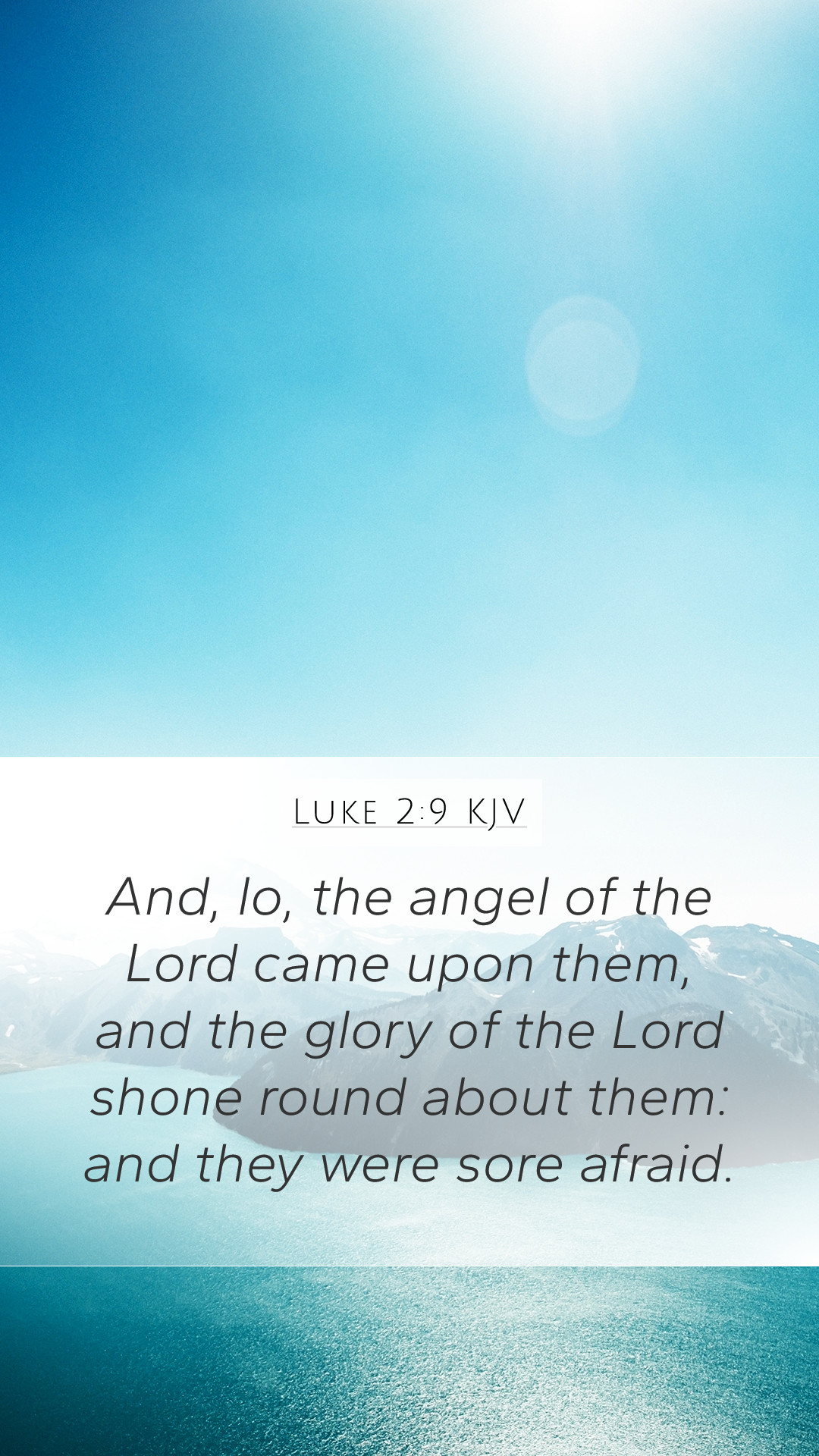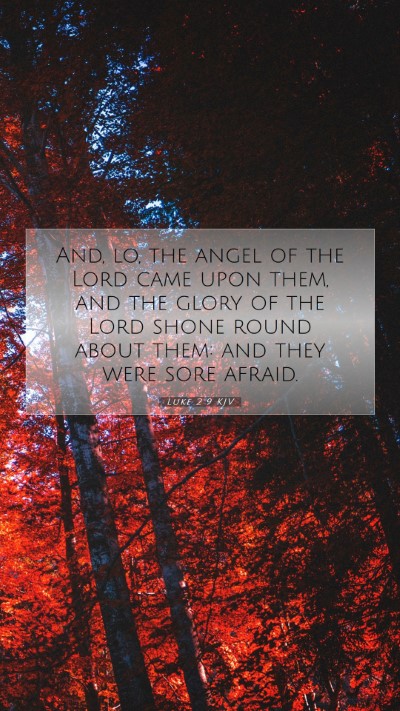Understanding Luke 2:9
Verse: "And, lo, the angel of the Lord came upon them, and the glory of the Lord shone round about them: and they were sore afraid."
Meaning and Interpretation
Luke 2:9 presents a profound moment of divine revelation, where an angel of the Lord appears to shepherds, illuminating the significance of Jesus' birth. This verse highlights several key themes to enhance our Bible verse understanding.
Appearance of the Angel
The appearance of the angel signifies a direct communication from God to humanity. According to Matthew Henry's Commentary, this moment represents God's choice to announce the birth of Christ to humble shepherds, emphasizing the inclusiveness of God's grace and the accessibility of the Gospel. The shepherds, who were lowly in society, were the first recipients of this joyful news, illustrating the theme of humility which runs throughout the Scripture.
The Glory of the Lord
The phrase "the glory of the Lord shone round about them" indicates a manifestation of divine presence. In the words of Albert Barnes, this glory was both awe-inspiring and fearful, as it reflects God's holiness and power. The shepherds' reaction of fear serves to highlight the stark contrast between human frailty and divine majesty, inviting us to reflect on Scripture analysis that reveals our need for reverence before God.
The Shepherd's Fear
Fearful reactions are a common response to divine encounters throughout the Bible. Adam Clarke points out that this fear demonstrates the shepherds' awareness of their unworthiness before the divine. This theme resonates with the broader biblical narrative where God’s holiness evokes both reverence and humility. The shepherds' fear signifies an awakening to the sacred, which aligns with the meaning of Bible verses that articulate humankind's position before God.
Historical Context
To fully understand Luke 2:9, we must consider its historical context. The shepherds in biblical times were often marginalized figures, further emphasizing the significance of their selection as the first witnesses to Christ's birth. This aligns with the larger Biblical exegesis that showcases God’s preference for the lowly and oppressed, illustrating a profound principle of God’s kingdom.
Application to Daily Life
The implications of Luke 2:9 extend beyond its historical and theological dimensions. For contemporary readers, this passage invites Bible study groups to grapple with their attitudes toward humility and fear of the Lord. How can we cultivate a sense of reverence in our lives? Online Bible study tools can aid us in exploring these reflections deeply.
Related Scripture References
- Exodus 34:29-30: Moses' encounter with God's glory
- Luke 1:30-33: The announcement of Jesus' birth to Mary
- Matthew 1:20-21: The angel's message to Joseph
- Isaiah 9:2: The prophecy of light to those in darkness
- Revelation 1:7: The coming of the Lord with glory
Conclusion
In conclusion, Luke 2:9 serves as a rich verse filled with meaning and relevance. From God's choice to announce Jesus' birth to shepherds to the manifestation of divine glory and the appropriate reaction of fear, this passage challenges us to recognize our place within God's grand narrative. It provides insights into the nature of divine revelation and encourages believers to maintain a posture of humility and reverence in their relationship with God.


